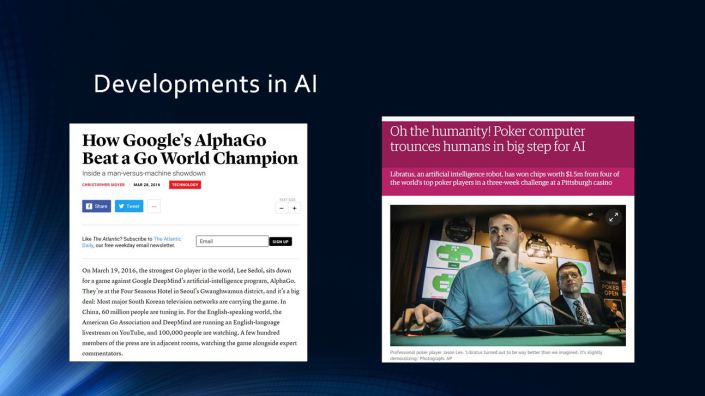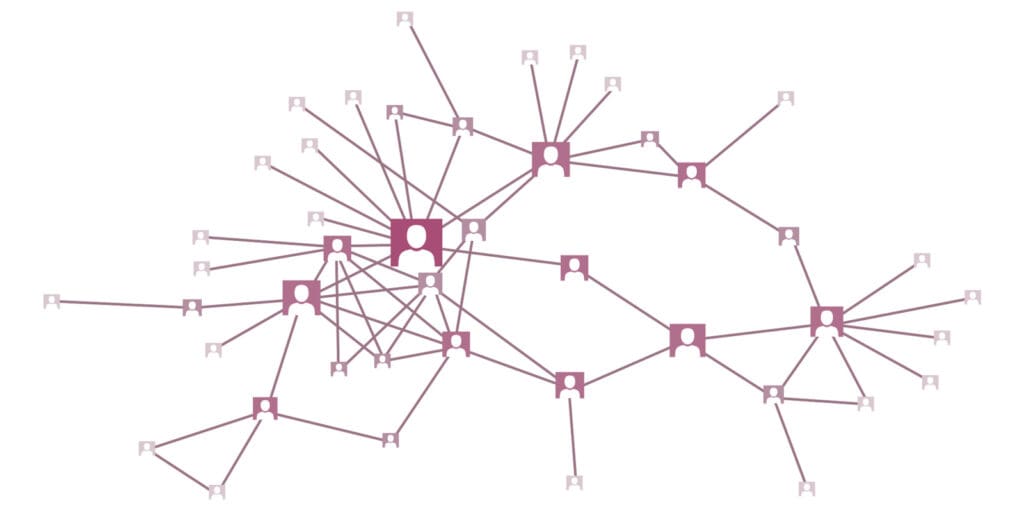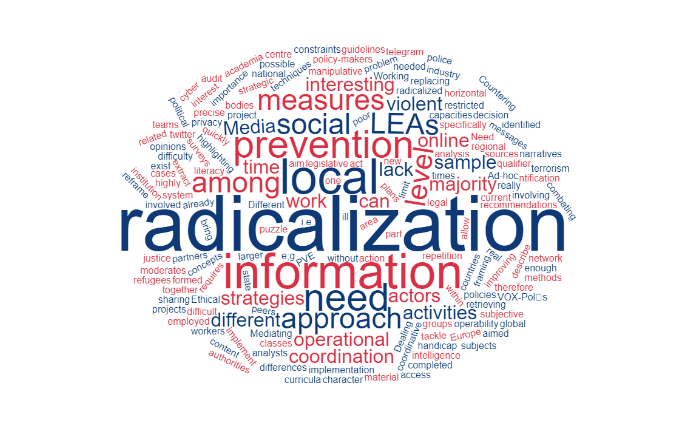Blog
Blog
ISIS’s Online Propaganda and Underlying Psychological Orientations of Its Consumers
January 18, 2018By Matteo Vergani and Ana-Maria Bliuc. Are the psychological factors driving ISIS’s mobilisation in Western countries different from those characteristic of other jihadist groups like al-Qaeda? Does the target audience of ISIS’s English-language online propaganda differ from that of al-Qaeda? If so, then how? In our new journal article, we examine these questions by analysing the ...
Blog
Can AI help us identify and stop terrorist attacks?
January 10, 2018This is an abridged version of a presentation delivered by David Wells at the World Counter Terror Congress in London on 4 May 2017. Intro Since leaving the intelligence world in late 2014, I’ve researched and written about counter-terrorism. My primary focus has been a controversial and misunderstood area of modern day intelligence practice – ...
Blog
The Hidden Face of Hate Groups Online: A Former’s Perspective
January 3, 2018By Brad Galloway and Ryan Scrivens 2017 saw an increase in the on- and offline activities of organised hate groups in various parts of the Western world, including – but, indeed, not limited to – the US, Canada, and the UK. Some have attributed this spike to the current political climate in the West, from ...
Blog
Account suspended: Twitter and extreme right-wing groups in the UK
December 20, 2017In December 2016, National Action became the first extreme right-wing group to be proscribed as a terrorist organisation in the UK. This, however, did not stop them from continuing their operations under new names, e.g. ‘Scottish Dawn’ and ‘NS131’, both of which were more recently banned by the Home Office. In a previous blog post, ...
Blog
How the Islamic State Uses ‘Virtual Lessons’ to Build Loyalty
December 13, 2017By André Gagné and Marc-André Argentino The Islamic State has lost most of its territory and key cities like Mosul and Raqqa, and more recently Deir al-Zour and al-Qaim, have fallen to the global coalition fighting the terrorist group. In the face of such challenges, it’s tried to maintain legitimacy through what some have called a virtual caliphate. Within ...
News
VOX-Pol Participation in the Swiss Institute of Comparative Law’s Conference on The Legal Framework for Countering Terrorist and Violent Extremist Content Online
December 8, 2017The Swiss Institute of Comparative Law held an international conference entitled ‘The Legal Framework for Countering Terrorist and Violent Extremist Content Online’ today, 8 December 2017. The conference was organised in collaboration with the UN Counter-Terrorism Committee Executive Directorate (UN CTED), the Swiss foundation ICT4Peace, and the Ethics and Communication Law Centre of the Università ...
News
VOX-Pol Participation in the Third Ministerial Meeting of the EU Internet Forum
December 7, 2017The third Ministerial meeting of the EU Internet Forum was held yesterday, 6 December 2017, in Brussels. The meeting was hosted by Commissioner for Migration, Home Affairs and Citizenship, Dimitris Avramopoulos, and Commissioner for the Security Union, Julian King. The aim of the meeting was to take stock of the progress made over the past ...
Blog
What is Britain First? The Far-Right Group Retweeted by Donald Trump
December 6, 2017By Chris Allen Donald Trump’s decision to retweet a number of videos originally posted by Jayda Fransen – the deputy leader of the far-right street movement Britain First – was as unfounded as it was unexpected. Retweeted without additional comment, the three videos purported to show a group of Muslims pushing a boy off a ...
News
VOX-Pol Participation in the Global Internet Forum to Counter Terrorism
December 5, 2017The Global Internet Forum to Counter Terrorism held an event this morning, 6 December 2017, at Google’s Brussels’ offices. The event featured representatives from GIFCT founder companies, Google, Facebook, Microsoft, and Twitter, along with the EU Commission, EUROPOL, ICT4Peace, CDT, and others. The first panel discussion and Q&A included stakeholders from agencies engaged in the ...
News
VOX-Pol Participation in the 9th Community of Users on Safe, Secure and Resilient Societies Workshop on Radicalisation
December 5, 2017The European Commission’s 9th Community of Users on Safe, Secure and Resilient Socieities Workshop on Radicalisation is taking place today, 5 December 2017, in Brussels. The projects represented are CONTRA, DANTE, FIRST LINE, LIAISE 2, MINDb4ACT, Pericles, PRACTICIES, RED-Alert, SAFFRON, STRESAVIORA II, TENSOR, TRIVALENT, and VOX-Pol. The aims of the workshop are: – To identify synergies and increase links and connections between H2020- and ISF-P-funded projects on radicalisation ...









